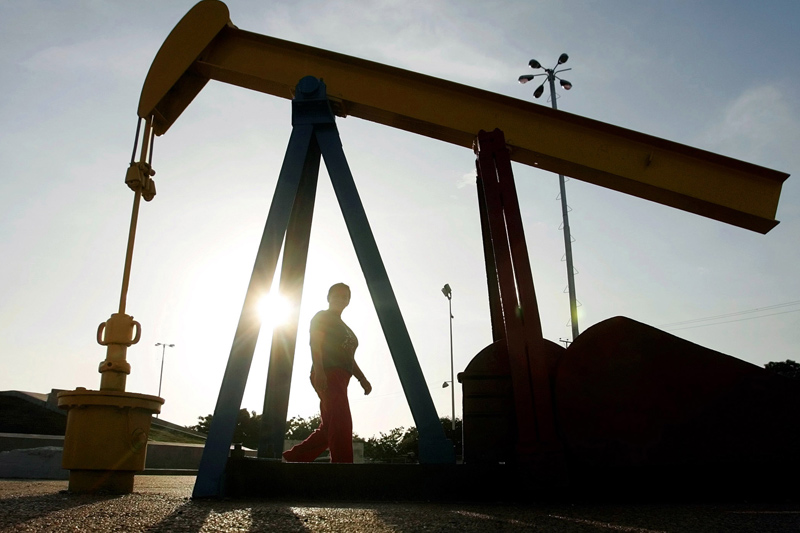Investing.com’s stocks of the week
Investing.com – Oil prices rose on Monday after data last week showed U.S. crude inventories fell to their lowest in three years. Trade dispute between the U.S. and China remained in focus.
Crude Oil WTI Futures for August delivery were trading at $74.08 a barrel at 12:02AM ET (04:02 GMT), up 0.38%. Brent Oil Futures for September delivery, traded in London, were also up 0.47% at $77.48 per barrel.
Official data showed on Thursday that inventories at Cushing, the delivery point for U.S. crude futures, fell to their lowest in 3-1/2 years.
"Cushing is clearly screaming out for crude, with the prompt few months more than $2 backwardated," said Virendra Chauhan, an analyst at Energy Aspects in Singapore.
The Organization of the Petroleum Exporting Countries (OPEC) and other countries agreed earlier this month to a moderate boost in output.
Meanwhile, traders remain cautious over the trade conflict between the U.S. and China, although analysts said concerns that oil prices would be weighted down by the development have faded somewhat.
The U.S. tariffs on $34 billion worth of Chinese goods came into effect on Friday. Trump told reporters that another $16 billion are expected to go into effect in two weeks, and that he is considering to impose additional tariffs on $500 billion in Chinese goods if Beijing retaliate.
In response, China followed up by imposing duties on the same value of U.S. products. China's Ministry of Commerce said it had no choice but to respond to the U.S. after the latter "launched the largest trade war in economic history."
In other news, Iran's oil minister on Saturday accused U.S. President Donald Trump of insulting OPEC by ordering it to increase production and reduce prices, adding that the country’s oil production and exports had not changed as a result of U.S. pressure.
"Mr Trump sends every day a new message that creates uncertainty in the market," Iranian Oil Minister Bijan Zanganeh said in an interview.
"Trump's order to OPEC members to increase production is a great insult to those governments and nations, and destabilises the market."
